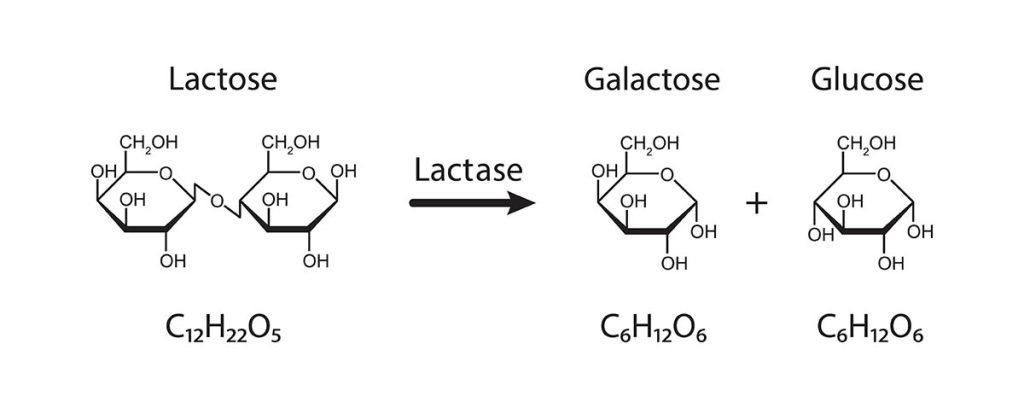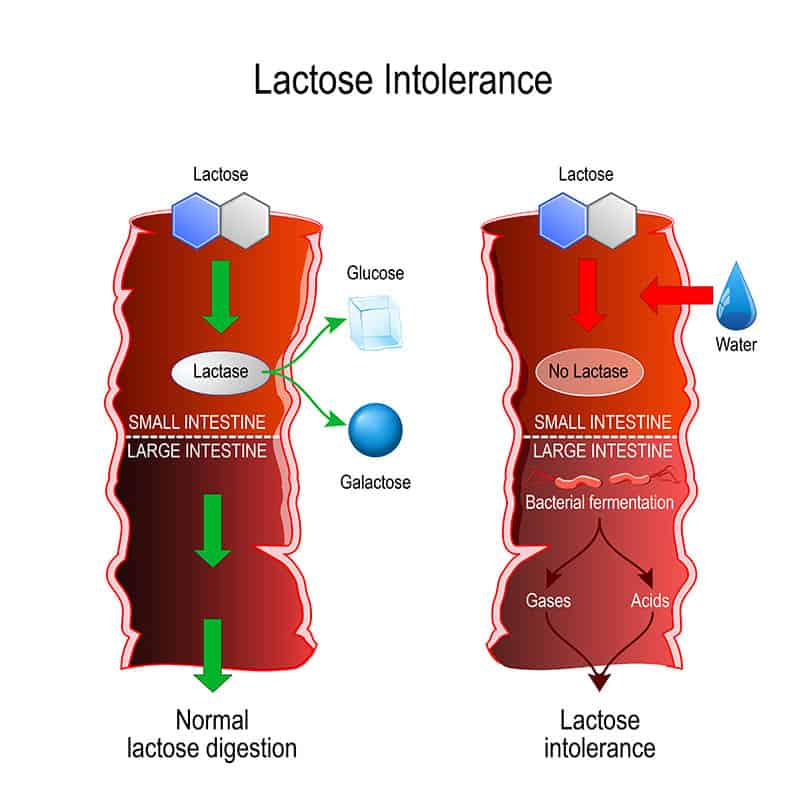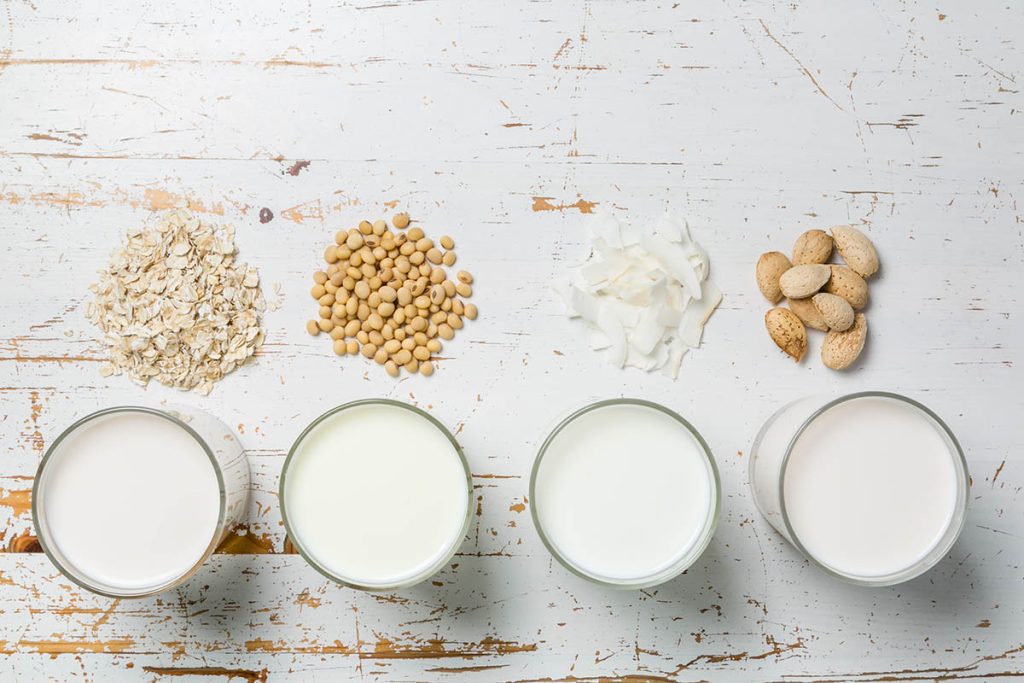
What is lactose intolerance?
Lactose intolerance refers to an inability to fully digest lactose, the sugar found in milk and dairy products which is very common in Singapore. This is due to a deficiency in lactase, the enzyme responsible for breaking down lactose.
Our small intestine produces lactase, and lactose malabsorption refers to an occurrence where the small intestine makes low levels of lactase and cannot digest all the lactose we consume. This leads to symptoms like abdominal pain, diarrhoea or gas when we consume dairy products.

The difference between lactose intolerance and a milk allergy
Unlike lactose intolerance, a milk allergy, or dairy allergy, is an abnormal immune response to a protein found in milk and milk-containing products. This not only leads to digestive issues, but also symptoms like swelling, rashes, fever, difficulty breathing and flu-like symptoms. In severe cases, a milk-induced allergic reaction can lead to anaphylaxis, which is potentially life-threatening.
Lactose intolerance can cause great discomfort but it is not life-threatening. Often, milk allergies show up early into one’s childhood, while lactose intolerance can happen at any point in one’s life.
If in doubt, it is best to consult your doctor so that lab tests can be run for a proper diagnosis.
What are the symptoms of lactose intolerance?
Symptoms of lactose intolerance occur when the undigested lactose travels to the large intestine. The gut bacteria break down the lactose, creating fluid and gas.
These symptoms are usually experienced within 30 minutes to 2 hours after consuming milk or dairy products. Symptoms vary, depending on how much lactose you consumed and how much lactase your body produced. Some of these symptoms are:
- Bloating
- Gas
- Diarrhoea
- Nausea or vomiting
- Abdominal pain
How do I know if it’s irritable bowel syndrome (IBS) or lactose intolerance?
Understandably, both these conditions have very similar symptoms. The best way to discern whether you have lactose intolerance would be to avoid lactose.
What causes lactose intolerance?

The cause of your lactose intolerance also helps define what kind of lactose intolerance you have.
Primary lactose intolerance
This type of lactose intolerance comes with ageing. As we age, enzyme production decreases, which, in turn, leads to some degree of lactose intolerance.
Secondary lactose intolerance
This type of lactose intolerance may be caused by a disease or injury to your small intestine. Some of these digestive diseases include:
- Small intestinal bacterial overgrowth
- Infectious enteritis e.g. giardiasis
- Mucosal injury e.g. inflammatory bowel disease especially Crohn's disease, celiac disease, drug or radiation-induced enteritis
Sometimes, if the underlying disease is treated, lactase levels may return to normal.
Congenital lactose intolerance
Although rare, lactose intolerance may be caused by genetic predisposition, also known as congenital lactase deficiency or congenital alactasia. This is an inherited genetic fault where there is very little or a complete absence of lactase in the child.
Developmental lactose intolerance
This type of lactose intolerance is temporary and occurs in prematurely born babies whose small intestines have not fully developed.
What are the risk factors for lactose intolerance?
Risk factors for lactose intolerance are:
- Increasing age
- Ethnicity
- Premature birth
- Exposure to radiation therapy for cancer
- Digestive diseases
When should I go to the doctor for lactose intolerance?
You are advised to visit the doctor if you need help easing discomfort from your lactose intolerance symptoms.
However, if you find that your discomfort does not ease and your gut health does not improve, please consult a doctor immediately as this could indicate a more serious underlying condition.
How is lactose intolerance diagnosed?
Your doctor may recommend confirmatory tests to diagnose lactose intolerance. These are:
Hydrogen breath test
This test measures the hydrogen output in your breath before and after drinking a beverage with lactose. Your body will produce unusually high levels of hydrogen if it cannot break down certain sugars properly.
You will be asked to breathe into a balloon-type container over 30-minute intervals for 3 to 4 hours.
Lactose tolerance test
Similarly, this test measures the level of glucose in your blood before and after drinking a beverage with lactose. Blood samples will be taken at hourly intervals.
What can I expect during my first consultation?
Your doctor will first obtain a thorough understanding of your symptoms and personal and family medical history. It would help to take note of all the food and beverages you’ve consumed when experiencing these symptoms.
Although lactose intolerance is not life-threatening, your doctor may recommend diagnostic tests in order to rule out more serious conditions with similar symptoms, such as Crohn’s Disease.
Can lactose intolerance be cured?
Unfortunately, there is no cure for lactose intolerance. However, there are proper lifestyle management practices you can adopt.
Consuming lactase tablets may help break down lactose and ease lactose intolerance symptoms.
What are the treatment options for lactose intolerance?

In patients with secondary lactose intolerance or lactose intolerance caused by an underlying condition, treating the problem may restore the body’s ability to produce lactase.
Lactose intolerance treatment involves proper lifestyle management practices such as:
- Avoiding milk and other milk derivatives such as:
- Whey
- Curds
- Cheese
- Butter
- Yoghurt
- Margarine
- Creamers and other dry milk solids
- Nougat
- Exploring lactose-free alternatives
- Taking calcium and vitamin D supplements
Put simply, the single, most effective treatment for lactose intolerance is lactose avoidance.
Thankfully, patients usually do not have to cut out all lactose in their diet. Pay attention to your body and how it reacts to different types of dairy products. Dr Benjamin Yip advises one to find a “sweet spot” in your diet, so that you will not miss out entirely on the lactose-containing foods you enjoy!
Summary

Hopefully, this guide has helped you better understand lactose intolerance. It is possible to manage your symptoms and live a normal life. However, it is best to get checked to rule out other serious conditions that may be causing the same symptoms.
References
- Lactase tablets or capsules.” Cleveland Clinic, https://my.clevelandclinic.org/health/drugs/19664-lactase-tablets-or-capsules. Accessed 7 May 2022.
- Lactose Intolerance.” Johns Hopkins Medicine, https://www.hopkinsmedicine.org/health/conditions-and-diseases/lactose-intolerance. Accessed 7 May 2022.
- Lactose intolerance - Diagnosis and treatment.” Mayo Clinic, 5 March 2022, https://www.mayoclinic.org/diseases-conditions/lactose-intolerance/diagnosis-treatment/drc-20374238. Accessed 7 May 2022.
- Lactose Intolerance: Symptoms, Diagnosis & Treatments.” Cleveland Clinic, 1 December 2019, https://my.clevelandclinic.org/health/diseases/7317-lactose-intolerance. Accessed 7 May 2022.
- Shoemaker, SaVanna, and Helen West. “Lactose Intolerance: Symptoms, Causes, Tests, and More.” Healthline, https://www.healthline.com/nutrition/lactose-intolerance-101. Accessed 7 May 2022.
- Sethi, Saurabh. “Lactose Intolerance: Types, Causes, and Treatment.” Healthline, 15 March 2018, https://www.healthline.com/health/lactose-intolerance. Accessed 7 May 2022.
- DerSarkissian, Carol. “Lactose Intolerance vs. Dairy Allergy: Symptoms, Diagnosis, Living With.” WebMD, 9 June 2021, https://www.webmd.com/digestive-disorders/lactose-intolerance-or-dairy-allergy. Accessed 7 May 2022.

